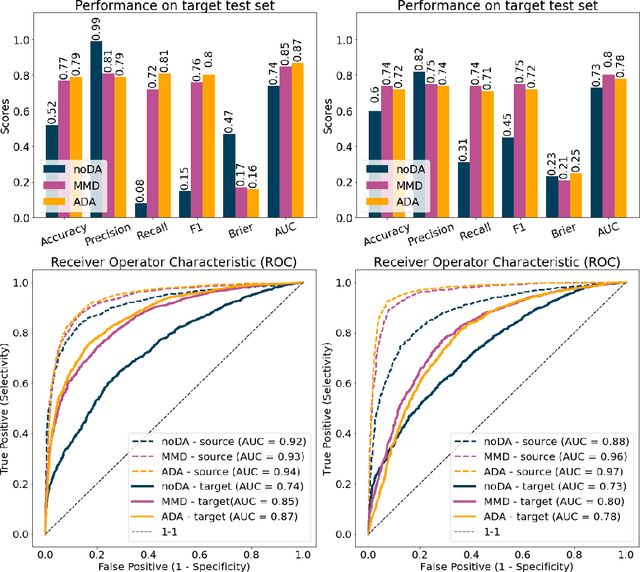Domain adaptation techniques for improved cross-domain study of galaxy mergers
Paper and Code
Nov 13, 2020

In astronomy, neural networks are often trained on simulated data with the prospect of being applied to real observations. Unfortunately, simply training a deep neural network on images from one domain does not guarantee satisfactory performance on new images from a different domain. The ability to share cross-domain knowledge is the main advantage of modern deep domain adaptation techniques. Here we demonstrate the use of two techniques - Maximum Mean Discrepancy (MMD) and adversarial training with Domain Adversarial Neural Networks (DANN) - for the classification of distant galaxy mergers from the Illustris-1 simulation, where the two domains presented differ only due to inclusion of observational noise. We show how the addition of either MMD or adversarial training greatly improves the performance of the classifier on the target domain when compared to conventional machine learning algorithms, thereby demonstrating great promise for their use in astronomy.
 Add to Chrome
Add to Chrome Add to Firefox
Add to Firefox Add to Edge
Add to Edge